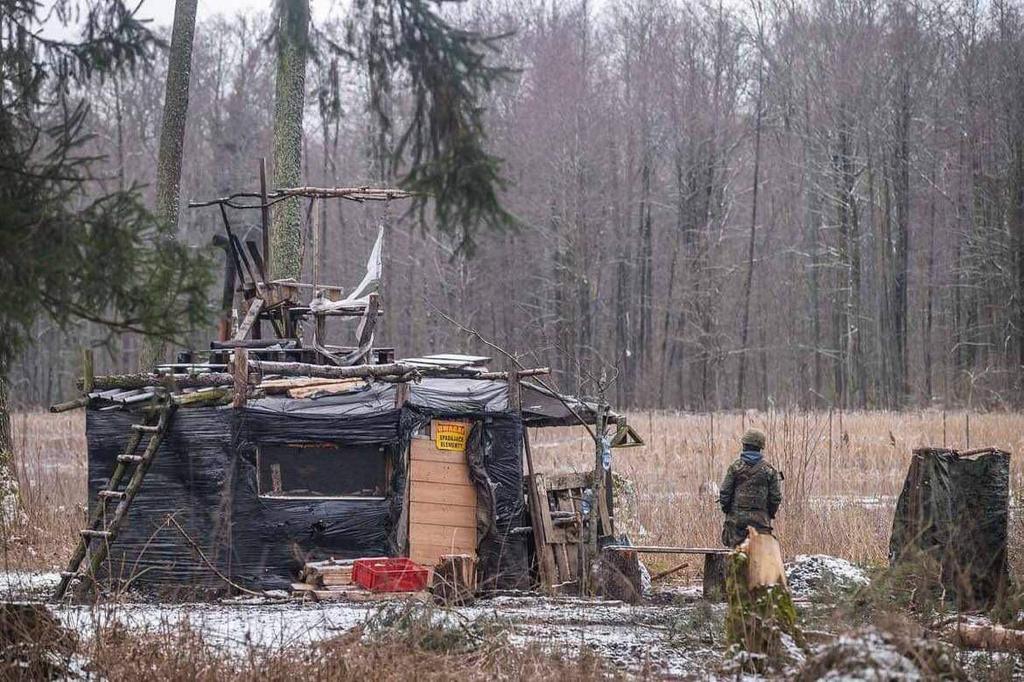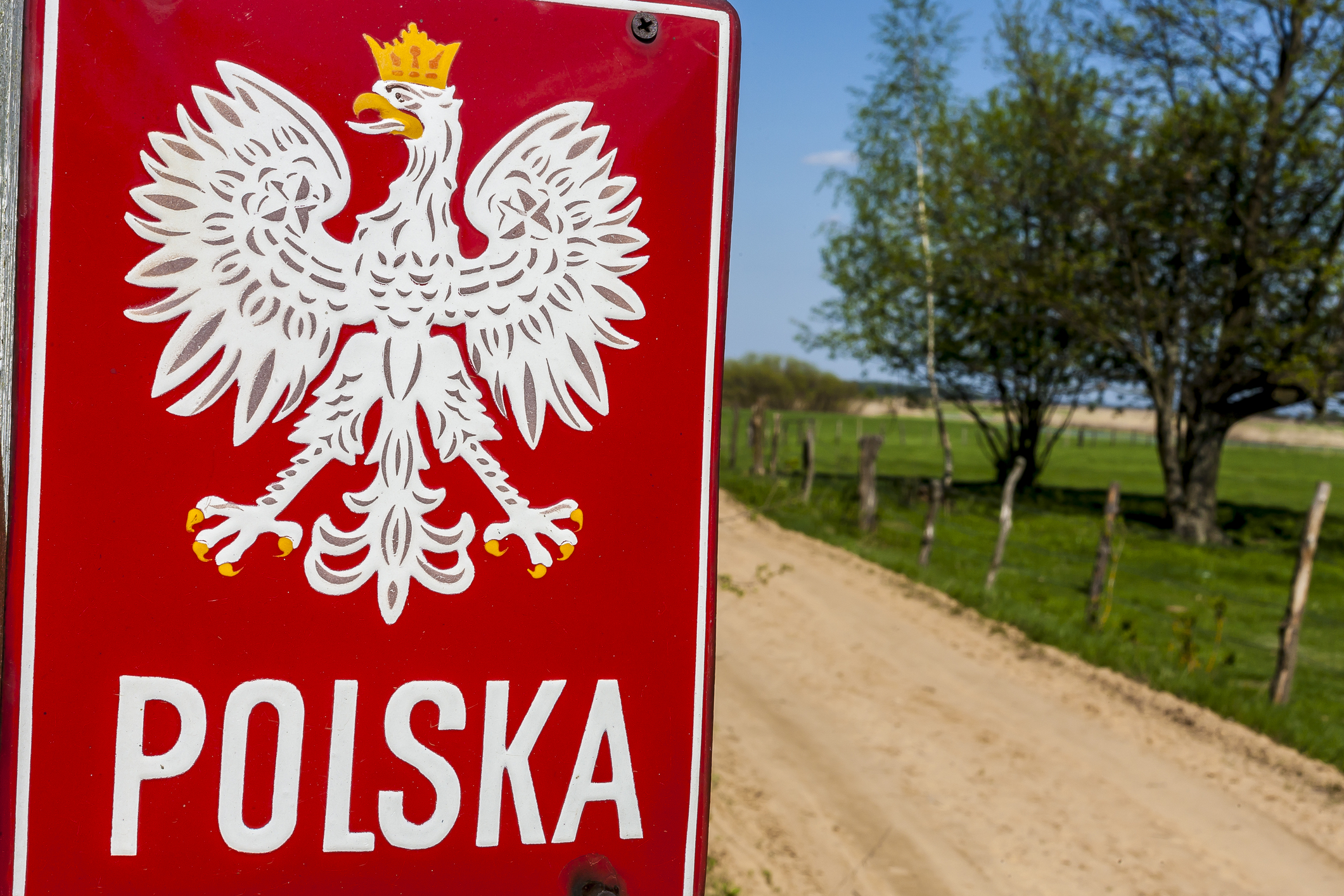Poland Confronts Illegal Migration: Hybrid War and How to Protect Their Borders?
In the past two years, Poland has started to struggle with a problem that is entirely new for the country – illegal migration.
The influx from the territory of Belarus is largely artificially generated by Russia, which uses it as a way to fight against Poland and other European countries.
The situation at the border is becoming increasingly difficult, and the Polish government fears taking a firm stance.
Contrary to reports in liberal media, the people gathering at the Polish-Belarusian border are not poor and hungry refugees, but conscious migrants who fly from Africa and the Middle East to Russia and Belarus to illegally enter the European Union with the help of organized criminal groups.
Poland is a key route for illegal migration in Central and Eastern Europe, primarily directed towards Germany. It’s no wonder – Poland’s border with Belarus is 418 km long. It’s a forested area with no large human settlements, making it difficult to control.
According to statistics from Poland’s Border Guard, since the beginning of May 2024, there have been over 7,500 attempts, and since the beginning of the year nearly 17,000 attempts illegally to cross the Polish-Belarusian border. Just over the past weekend, 430 attempts illegally to cross the border were recorded.
Recently, there has been increasing aggression towards Polish officers who often try to stop illegal border crossings forcibly. Poles are regularly targeted with stones, burning branches and firecrackers, metal balls shot from slingshots, and Belarusian special services have repeatedly blinded them with lasers. They equip migrants with ladders and tools needed to destroy the fence. They also provide them with weapons, including clubs studded with nails.
Polish intelligence services report attempts by Russians to recruit experienced fighters in Africa to attack Polish police officers, soldiers, and border guards. Even without these additional Moscow-recruited thugs, the number of attacks at the border is systematically increasing, and the situation is becoming more difficult. It is widely agreed that Belarusian services have already trained many migrants.
A tragedy occurred at the end of May when a 22-year-old Polish soldier, Mateusz Sitek, was severely injured. The young soldier was stabbed as he approached the barrier to patch a hole. A Border Guard officer was treating the wounded soldier under a barrage of thrown knives and spears. The attack was deliberate and calculated – the knife was covered in feces. The wound became infected, and the soldier died in the hospital a few days later.
The death of the young Polish soldier, who was a volunteer, shocked Poles and sparked an avalanche of comments. Particularly troubling to the Polish public are unconfirmed reports that the government deliberately covered up the fact of the soldier’s death to prevent the information from appearing in the media before the European Parliament elections last week.

Reports from the border began to emerge quickly. According to these reports, the situation is more difficult than publicly believed. Rumors of conflict between the military and the Border Guard started to surface.
Soldiers and Border Guards are exhausted, both physically and mentally. Their living conditions are poor – despite Poland’s pride in its high defense spending, the security personnel at the border live in makeshift barracks that resemble homeless shelters rather than posts of a professional army.
Moreover, during the same period, it was revealed that in mid-March, the military judiciary detained three soldiers who fired shots into the ground in self-defense against a crowd of aggressive migrants. They were arrested, a fact that outraged soldiers and drastically lowered morale at the border. Many of them see no reason to risk their health and lives when the state does not support them.
Polish public opinion was shocked to learn that Polish soldiers at the border have minimal powers, and politicians have done nothing to adapt the law to these difficult realities.
They cannot use firearms except for firing warning shots into the air. This makes them vulnerable to attacks without consequence. They also lack training on how to handle aggressive crowds. For them, the conclusion is clear – either they will die at the hands of an aggressive migrant, or they will defend themselves and then be imprisoned for exceeding their authority.
This has sparked a discussion about rules of engagement and the right of soldiers to use live ammunition. The Polish public was surprised to learn that the police officers sent to the border with Belarus were not armed. Pictures of police officers with empty holsters quickly spread across the Polish Internet. Only now, after the recent crisis, have they been granted the right to carry firearms. Additional police units equipped with smoothbore weapons have been deployed.
Regarding the rules of engagement, a significant portion of Poles support the right of Polish security services to use firearms more freely. There are voices suggesting that the use of live ammunition would reduce the influx of migrants, who currently are aware of their impunity.
However, the liberalization of firearm use regulations is unlikely. Deputy Minister of National Defense Paweł Zalewski stated that looser rules of engagement are not possible because then “migrants will be killed on the Polish side, and we will have an exchange of fire with the Belarusian KGB.” On the other hand, Prime Minister Donald Tusk announced the preparation of new regulations.
Poles are disheartened that the weakness of the state and incompetence of politicians led to the death of a young soldier who had his whole life ahead of him. Few have hope that decision-makers will learn from their mistakes and correct the errors of recent years.
Featured photo:Photo 30826707 | Polish Border © Gashgeron | Dreamstime.com

